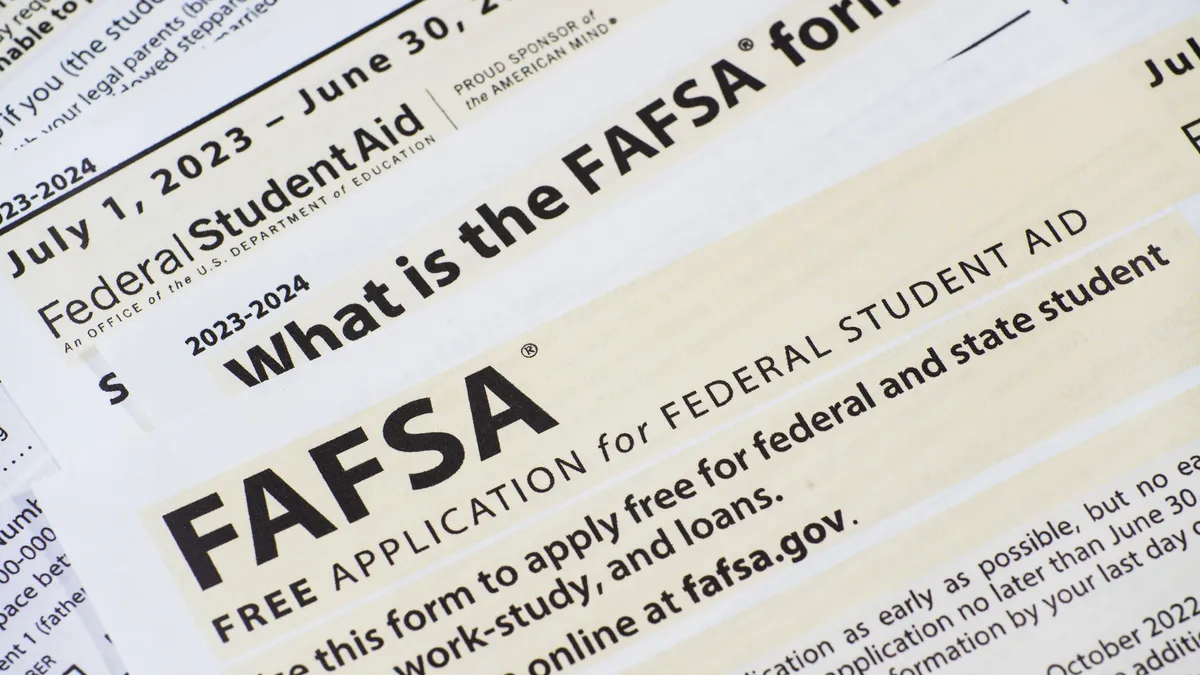Dive Brief:
- Over two dozen Republican lawmakers are urging a government watchdog to investigate the U.S. Department of Education’s rollout of the updated Free Application for Federal Student Aid.
- The Education Department launched the simplified FAFSA on Dec. 30, just two days before its congressionally dictated deadline. But technical difficulties and changing aid formulas have led politicians and higher ed leaders alike to worry about further delays.
- In a Wednesday letter to the head of the U.S. Government Accountability Office, lawmakers — led by North Carolina’s Rep. Virginia Foxx and Louisiana’s Sen. Bill Cassidy — requested the office look into what challenges students and institutions encountered during the rollout and what the Education Department is doing to prevent the issues from carrying over into the next cycle.
Dive Insight:
Lawmakers intended for the simplified FAFSA to to be a reprieve from the original form, which had over 100 questions and caused frustration among students and their families. The new form only has a few dozen questions.
But when the Education Department unveiled the update in December, it branded the reveal as a soft launch and the form was initially available to the public in short intervals.
The FAFSA usually goes live at the start of October, and the delayed release has truncated the timeline for colleges to make financial aid offers. This challenge will be exacerbated, as the agency said it wouldn't send applicant data to colleges until late January.
“Because of Education’s delays, college administrators are also uncertain of when they will eventually receive information from students’ FAFSAs that is essential for determining financial aid packages,” the letter stated. “Some colleges may be unable to meet their normal timelines for providing students with financial aid offers, which could leave students without time to compare offers and pick a school that is affordable."
The group also inquired about how, if at all, the Education Department informed students about filling out the new FAFSA and what guidance it has given to colleges about implementing the changes into their own financial aid processes.
"Initial feedback from students and schools indicates that Education’s current outreach efforts are falling short," their letter said.
Just this week, the Education Department confirmed that it would be changing the FAFSA's aid calculations mid-cycle to account for inflation. The move will distribute $1.8 billion more in federal student aid to students, according to a department spokesperson.
Kim Cook, CEO of the National College Attainment Network, praised the change but worried how it would impact financial aid timelines.
"We need details on how and when this update will roll out since it could further delay FAFSA data getting to colleges and states that expected to receive applicant data by the end of January," Cook said in a statement Wednesday.














